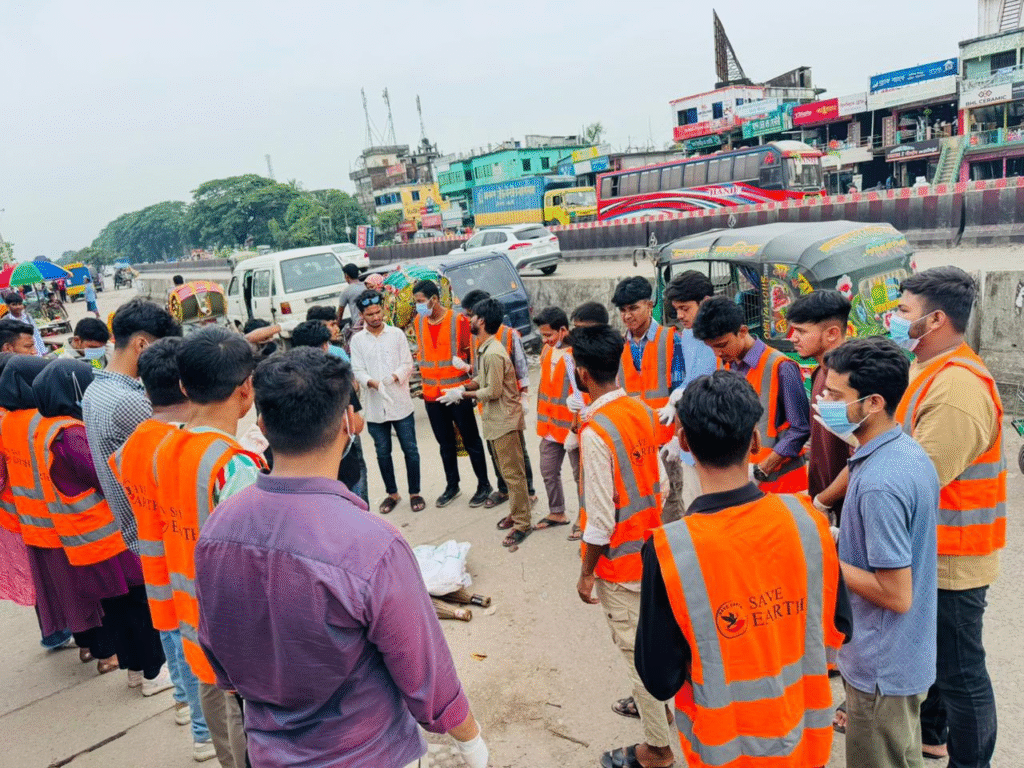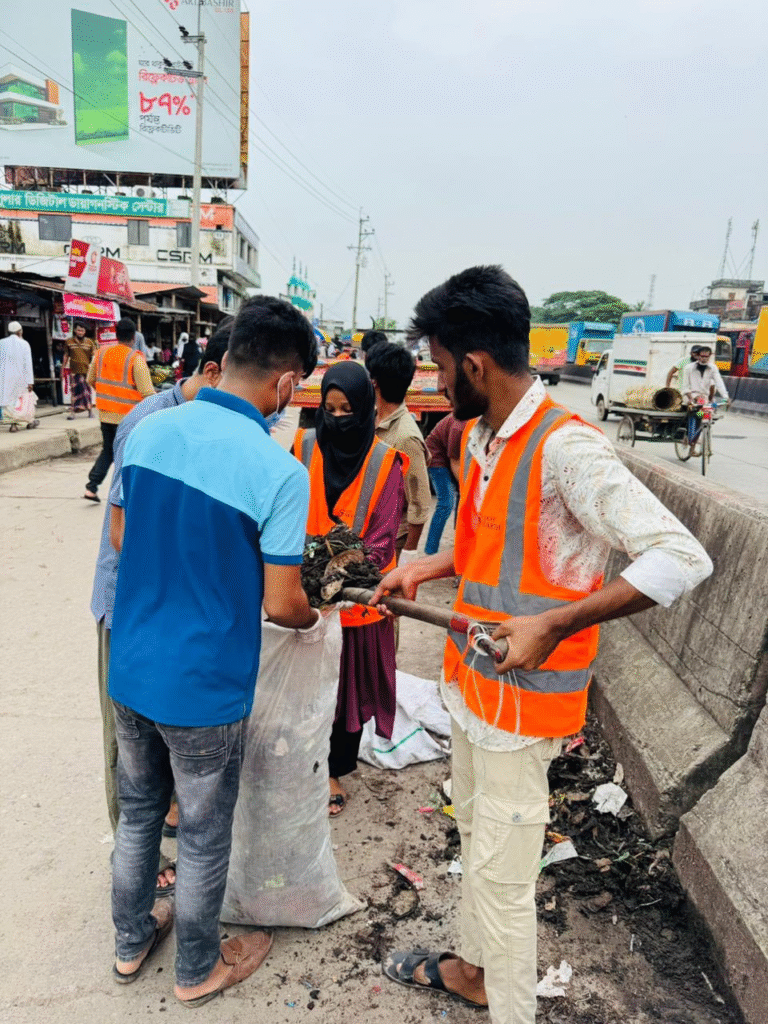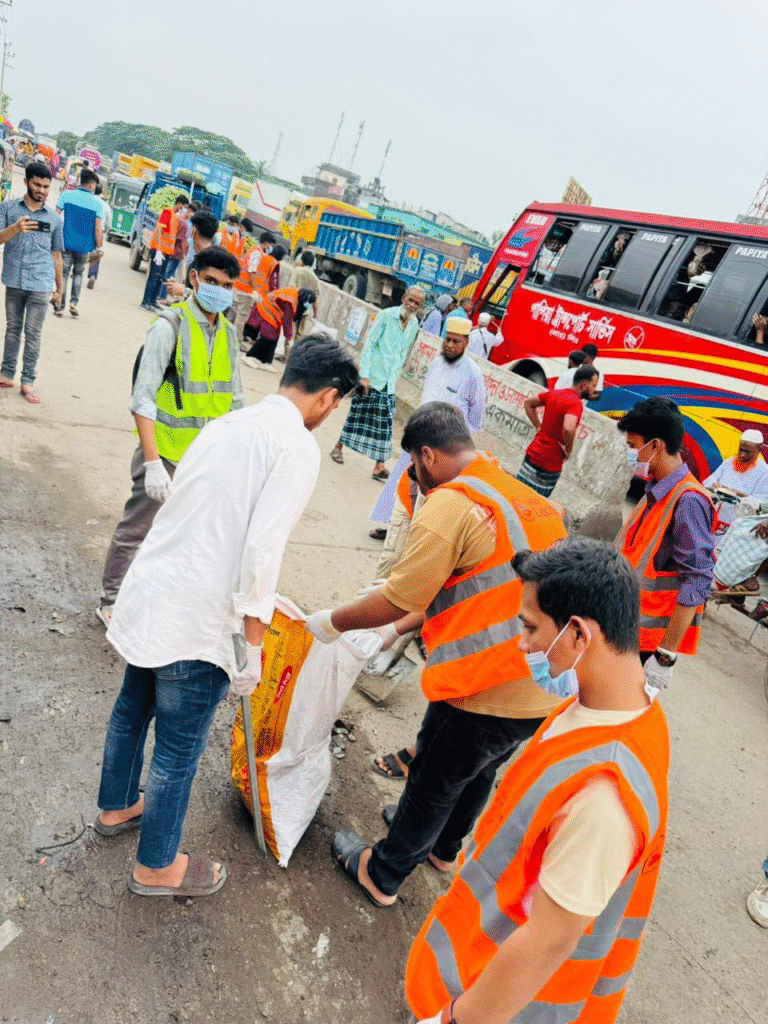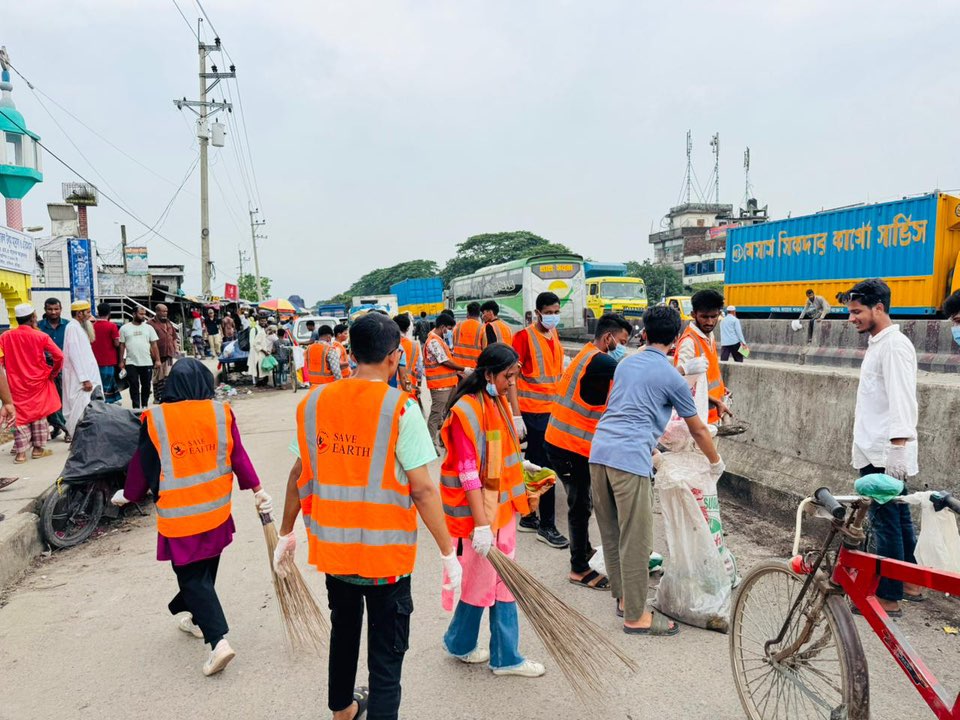On a bright morning in Cumilla's Chandina Upazila, the Save Earth Society conducted a significant cleanliness drive in Madhaiya Bazar. This initiative, organised as part of their ongoing mission to promote environmental awareness and community hygiene, attracted the attention and active participation of local residents, volunteers, and government representatives. Among the notable attendees was the Assistant Commissioner (Land) of Chandina, Mr. Faysal Al Noor, whose presence highlighted the importance of public-private collaboration in environmental initiatives.

Bangladesh, with its rapidly urbanising landscape and increasing population density, is facing growing challenges in solid waste management and environmental sustainability (Hoornweg & Bhada-Tata, 2012). Marketplaces such as Madhaiya Bazar, serving thousands of people daily, are critical points where hygiene and cleanliness significantly impact public health and environmental integrity. Cleanliness drives in these areas not only reduce pollution and disease transmission but also raise community awareness about waste management practices.

The cleanliness campaign held on July 14, 2025, began early in the day with an opening speech by representatives of the Save Earth Society, emphasising the theme "Clean Environment, Healthy Life." The campaign targeted waste accumulation in and around Madhaiya Bazar—a common issue in marketplaces due to high foot traffic, lack of proper disposal systems, and insufficient public awareness. Volunteers were seen collecting plastic bags, food waste, and other non-biodegradable items, using eco-friendly tools and biodegradable sacks.
Speaking at the event, Mr. Foysal Al Noor stated, "This is not just a clean-up—it is a message. A message that we care about our future, our environment, and our health. The administration is proud to support such youth-led initiatives that aim to make our communities more livable."

The success of the Madhaiya Bazar clean-up drive was largely due to the high level of community engagement. Local shopkeepers, students, and everyday citizens participated enthusiastically, proving that grassroots movements can bring meaningful change. Educational sessions on waste segregation, recycling, and the harmful effects of plastic were also conducted during the event in an effort to instill long-term behavioural change.
Studies show that community-based waste management programs in developing countries are more effective when local people are involved directly (Ahmed & Ali, 2004). This drive demonstrated that when citizens are given a platform, they rise to the occasion.

While the event lasted only a day, its impact was measurable. According to organizers:
- Over 300 kg of waste was collected, including approximately 120 kg of plastic waste.
- More than 150 volunteers participated.
- Awareness sessions reached at least 500 local individuals.
These figures, while modest, are vital in showing the capacity of local efforts in contributing to larger environmental goals, including the UN Sustainable Development Goals (UNDP, 2023), particularly Goal 11 (Sustainable Cities and Communities) and Goal 13 (Climate Action).

Despite its success, the campaign highlighted several challenges. The lack of permanent waste bins, absence of regular municipal cleaning, and public apathy remain major hurdles. Local vendors expressed concerns over the irregular garbage collection and the absence of recycling initiatives.
"If we had proper garbage bins and routine collection, we wouldn’t be forced to throw waste in open drains," said one shopkeeper. These sentiments echo the findings of research indicating that infrastructure and policy must accompany awareness for real change (Zhao et al., 2016).

To build a beautiful city, the following steps are needed:
- Establishing Permanent Waste Management Infrastructure: Install colour-coded bins for segregated waste and ensure regular municipal collection.
- Policy Support: The Upazila administration should enact localised policies to support waste reduction, including bans on single-use plastics.
- School-Based Environmental Education: Introduce cleanliness and sustainability topics in school curriculums to instill lifelong habits.
- Public-Private Partnerships: More collaborations between NGOs like Save Earth Society and local authorities can amplify the impact of such initiatives.
- Monitoring and Evaluation: Set up a monitoring mechanism to evaluate the long-term effectiveness of cleanliness drives.

The Madhaiya Bazar cleanliness campaign in Chandina Upazila, spearheaded by Save Earth Society and supported by government representatives like Mr. Foysal Al Noor, exemplifies how community-driven initiatives can lead to meaningful environmental action. It demonstrated the power of collaboration, awareness, and local action in addressing broader ecological challenges. As Bangladesh moves forward on its path of development, such grassroots efforts must be recognized, supported, and scaled up to ensure a cleaner, healthier, and more sustainable future.
References
Ahmed, S. A., & Ali, M. (2004). Partnerships for solid waste management in developing countries: linking theories to realities. Habitat International, 28(3), 467-479.
Hoornweg, D., & Bhada-Tata, P. (2012). What a waste: a global review of solid waste management. World Bank.
UNDP. (2023). Sustainable Development Goals. United Nations Development Programme. https://www.undp.org/sustainable-development-goals
Zhao, W., van der Heijden, J., & Ma, L. (2016). The politics of administrative reform in China's waste management. Environmental Politics, 25(1), 86-107.

